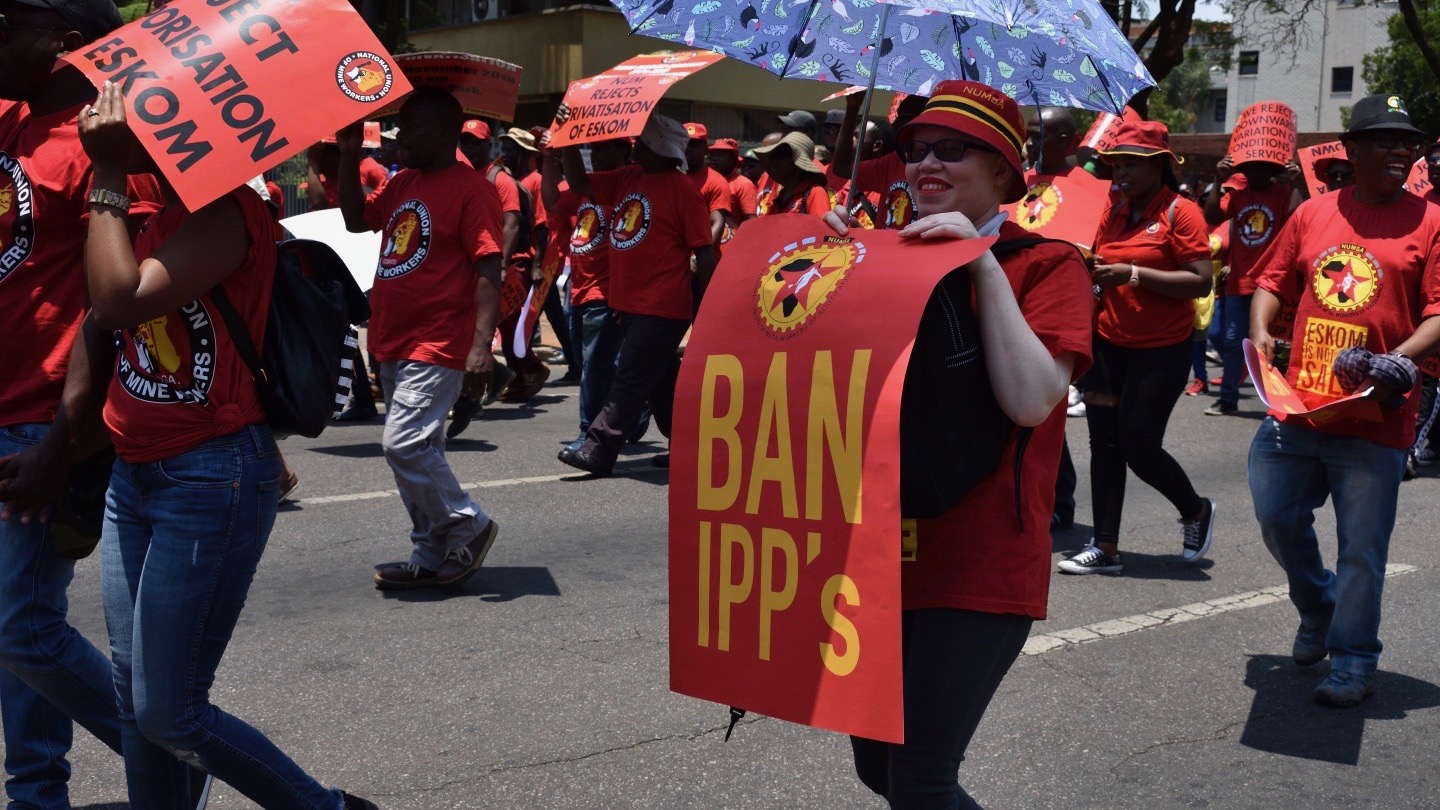On Tuesday, January 24, trade unions, political parties, and civil society groups in South Africa approached the North Gauteng High Court in Pretoria seeking an end to load-shedding, or planned blackouts to regulate electricity supply, by state-owned energy utility company Eskom.
“Load Shedding is destroying jobs and the livelihoods of our people and it is killing patients in hospitals,” the National Union of Metalworkers of South Africa (NUMSA), the country’s largest trade union, said in a statement. NUMSA has been joined by applicants including the United Democratic Movement, the Soweto Action Committee, and the South African Federation of Trade Unions (SAFTU) in seeking legal recourse.
South Africa has been in the throes of a major electricity crisis over the past year, with 200 days of power outages recorded. A push towards austerity and privatization have led to a situation where Eskom’s coal-dependent and aging power generation plants have struggled to meet the country’s energy needs for the past 15 years.
Watch: The devastating impact of South Africa’s electricity crisis
In early January, Eskom had announced that it was extending “Stage 6” load-shedding, deemed the worst outage level on record with blackouts lasting up to eight hours a day. Stage 3 and Stage 4 load shedding have also continued this week in several areas.
“In January 2018, we had excess power. But as we sit today, this government has destroyed Eskom to the extent where it cannot even keep the lights on for 24 hours… Load Shedding has cost the economy not less than R1.2 trillion (almost $70 billion) from 2018 to 2022,” NUMSA said.
On January 22, Eskom’s board chairperson Mpho Makwana stated that the company was working to deliver a level of “predictability” to South Africans. This would take the form of implementing “some level of permanent stages between Stage 2 and 3 load shedding for the next two years in order to give sufficient space for maintenance…,” he said, adding that this time period was necessary for the recovery of Eskom’s coal-fired power generation stations.
Part one of the application filed by NUMSA and others seeks an urgent order by the court to stop load shedding in public hospitals, clinics, schools, networks for electronic communication and mobile phone operation, police buildings, entities responsible for supplying water, and small businesses trading in perishable goods.
It also calls on the court to suspend the decision of the national energy regulator to grant Eskom approval for a 18.65% hike in electricity tariffs. The application seeks key information from the Department of Public Enterprises (DPE) and Eskom about their plans to ensure electricity supply, along with advanced notice of the proposed load shedding schedules. Additionally, it asks that the minister of public enterprises and the minister of minerals and energy produce agreements regarding the construction and performance of the Medupi and Kusile power stations. Details concerning Independent Power Producers (IPPs) including any agreements and payments have also been sought.
Within seven days of an interim order being granted, the applicants have also sought documents from President Cyril Ramaphosa, including those outlining the government’s plans to alleviate the adverse impact of load shedding on the public sector and employment, and plans and agreements related to the “Just Energy Transition.”
The second part of the submission is seeking declaratory orders from the court stating that President Ramaphosa failed to protect and fulfill the rights enshrined in the Bill of Rights and defend and uphold the constitution. The applicants have also sought a declaration that Eskom, the minister of public enterprises, and the South African government failed to “ensure the provision of an uninterrupted and reliable power supply” under the Electricity Regulation Act, which, NUMSA states, “violated our collective right to healthcare, equality, dignity, freedom, and other rights.”
The union has expressed hope that the court will hear the matter on February 28, adding that “The decision to go to court is to ensure that the ANC (African National Congress) government acts in the interests of all of us as the majority, and that it does not continue to use the electricity crisis as a vehicle to enrich crony capitalists at our expense.”





